Genetic Improvement of Blueberries: Phase I
Why This Project Is Important
Blueberries are very important to human health. There are 10 proven health benefits have been found by consuming blueberries, which are:
- Blueberries are low in calories but high in nutrients in the forms of fiber, vitamin C and vitamin K;
- Blueberries are the king of antioxidant foods contributing to fight against aging and diseases, such as cancer;
- Blueberries reduce DNA damage, helping protect against aging and cancers;
- Blueberries lower blood pressure;
- Blueberries prevent heart diseases;
- Blueberries help maintain brain function and improve memory;
- Anthocyanins in blueberries have anti-diabetes effects;
- Blueberries protect cholesterol by increasing the HDL (good cholesterol) and lowering LDL (bad cholesterol) in your blood;
- Blueberries fight urinary tract infections; and
- Blueberries reduce muscle damage after strenuous exercise.
All of these benefits are much more pronounced in wild blueberries than in cultivated species.
Ref: (1) W Liu, Y Mao, J Schoenborn, Z Wang, G Tang, X Tang (2019) Whole blueberry protects pancreatic beta-cells in diet-induced obese mouse. Nutrition & metabolism 16 (1), 1-9; (2) Hongxue Li, Shouwen Wang, Lulu Zhai, Yuhai Cui, Guiliang Tang, Junwei Huo, Xuyan Li, Shaomin Bian (2023) The miR156/SPL12 module orchestrates fruit colour change through directly regulating ethylene production pathway in blueberry. Plant Biotechnology Journal https://doi.org/10.1111/pbi.14193
Project Description
Blueberry is a major fruit plant cultivated in the United States (US). The US is the largest producer of blueberries in the world, with an annual blueberry production of 239,071 tons; at least 14 states produce blueberries. In 2016, the US produced and consumed 588.8 million pounds of cultivated blueberries (mainly highbush and rabbit eye varieties), of which 314.6 million pounds were sold as fresh blueberries, and 274.2 million pounds were sold as processed. According to a report from the US Department of Agriculture (USDA) in 2014, Michigan is the nation's second largest producer of cultivated (highbush) blueberries with 96.1 million pounds, after Washington and followed by Georgia, Oregon, New Jersey, California and North Carolina. In total, fresh and processed cultivated blueberries were valued at $720.2 million.
While wild blueberries have a much better flavor than established cultivars, the yield of wild blueberries is only 1/10th of the commercially available cultivars. For this project, I will collect all the wild blueberry lines in the Upper Peninsula (UP) regions as a valuable resource and breed them with commercially available cultivars for producing new blueberry species with bigger fruit containing the best flavor from wild blueberries. For that objective, the following tasks will be completed:
- Collect wild blueberry species with the best flavors around the UP region;
- Grow the collected wild blueberry lines in test tubes at the Michigan Tech Blueberry Research Station;
- Breed for high yield blueberry cultivars with bigger and flavorful berry fruits using the collected wild blueberry lines and currently available cultivars.
Completion of this project will help Michigan Tech establish the first Blueberry Research Station for Biological Sciences, Forestry, and Engineering. Students will enjoy "U-Pick" activities at Michigan Tech's Blueberry Research Station.
Meet the Researchers

Li Chen
Graduated at Michigan Tech University with BSc., MSc, and Ph.D. degrees. Highly credentialed professional with in-depth expertise of molecular biology and biochemistry, along with advanced knowledge of bioinformatics, plant secondary metabolite extracts Possess international experience and cross-cultural communications (Mandarin & English) with a transferrable ability to communicate with global clientele based in US-China regarding bio-medical and health metabolite technology. Offer 5+ years of experience in conducting results-driven collaborative research in
molecular biology, tumor biology, and plant secondary metabolites.

Guiliang Tang
Dr. Tang conducted his graduate research on the catabolic pathway of the essential amino acid lysine in the laboratory of Dr. Gad Galili at the Weizmann Institute of Sciences, Israel. He then moved to the laboratory of Dr. Phillip D. Zamore at the University of Massachusetts Medical School for his post-doctoral research on plant RNA interference (RNAi) and microRNA (miRNA) pathways. He established his independent Gene Suppression Laboratory at the University of Kentucky (UK) and became a tenured Associate Professor there. In October 2011, he moved from UK to Michigan Technological University (MTU) at the Michigan’s Upper Peninsula (U. P.) for a family reunion and enjoyed the first winter time with much outdoor activities with his wife and kids. In May 2016, he became a full professor.
days left
funded
last
What Your Donation Can Help Us Do:
- Collect wild blueberry species with best flavor around the UP region
- Grow the collected wild blueberry lines in test tubes for testing at Michigan Tech's Blueberry Research Station
- Breed for blueberry cultivars with bigger and flavorful berry fruits using the collected wild blueberry lines and currently available cultivars
- Tuitions for undergraduate, graduate, visiting scholar, and post-doctoral researchers
$25 (45/1000)
You will receive one potted blueberry bush or six small blueberry plants (pick-up only. Dr. Tang will contact you to coordinate the pick-up).
$35 (0/1000)
You will receive one potted blueberry bush or six small blueberry plants (shipping option. Shipping only available in the U.S.).
$50 (28/1000)
You will receive 12 plantlets (free shipping - shipping only available in the U.S. or pick-up available)
$500 (5/5)
Free U-Pick for land and tractor donation near Michigan Tech
Recent Donors
Some donors may be hidden.

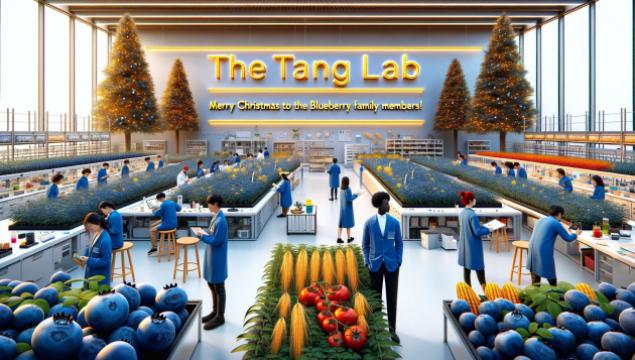


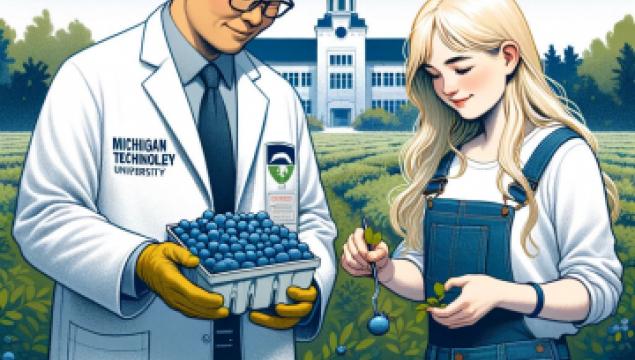
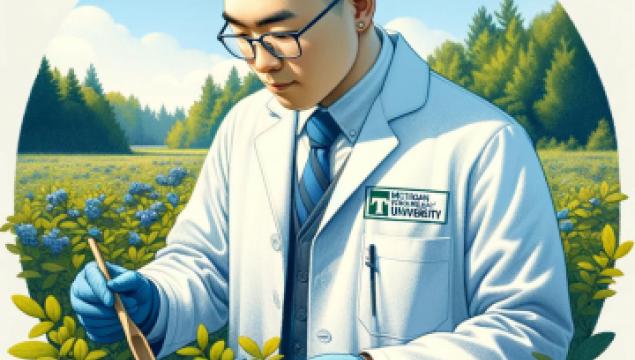

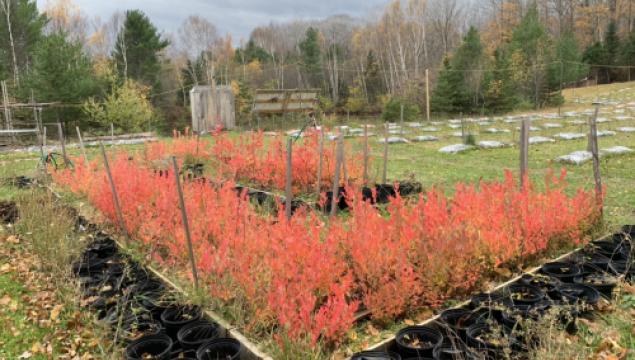

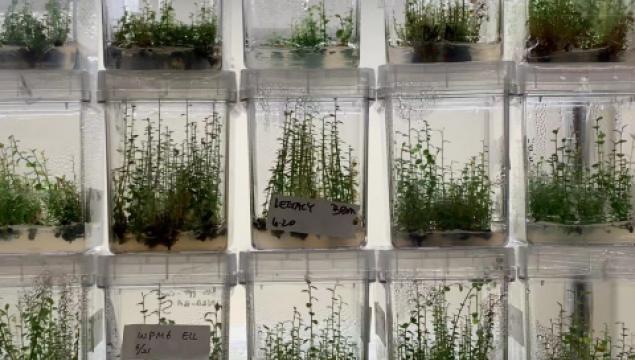
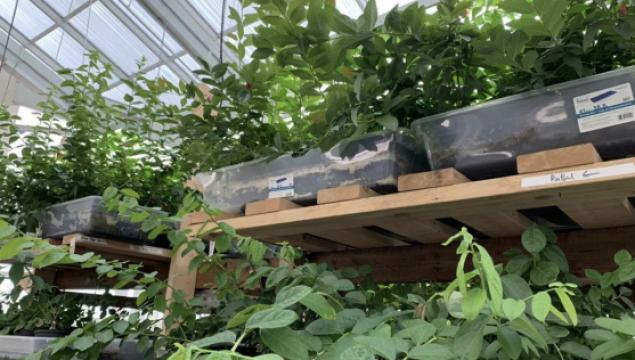
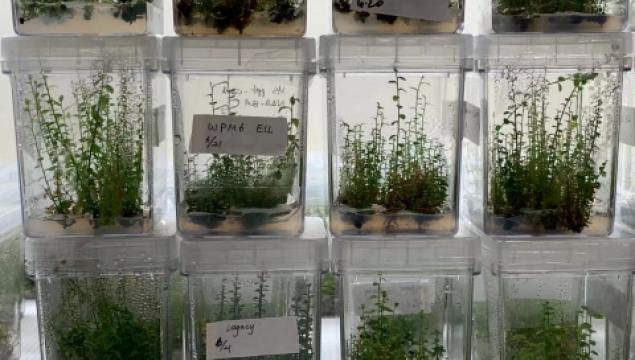
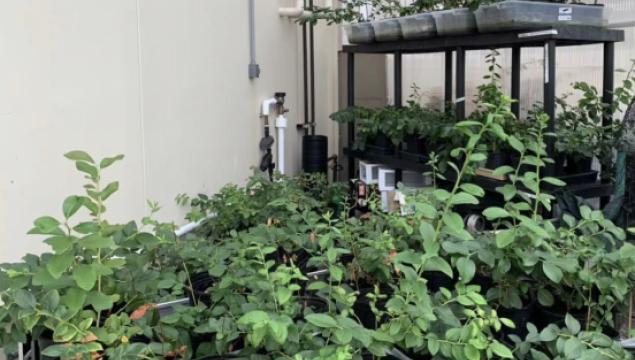
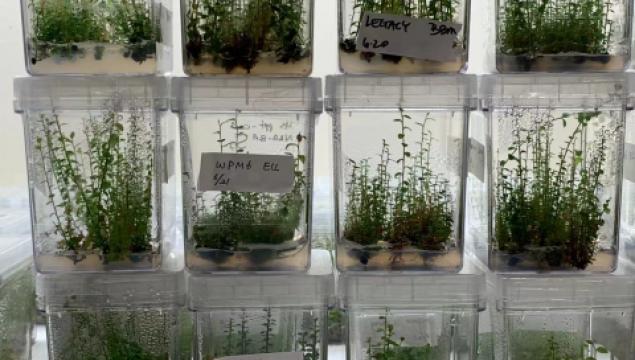
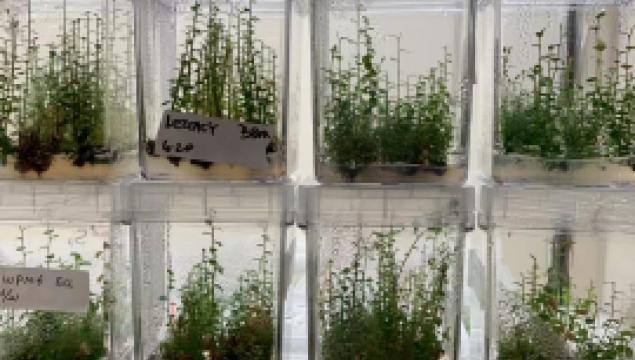







 Gifts to projects listed on SUPERIORIDEAS.ORG are received and processed by Michigan Tech Fund. Michigan Tech Fund is a tax-exempt organization under Section 501(c)(3) of the Internal Revenue Code acting on behalf of Michigan Technological University. It is the policy of Michigan Tech Fund that a portion of the gifts and/or income therefrom may be used to defray the costs of raising and administering the funds.
Gifts to projects listed on SUPERIORIDEAS.ORG are received and processed by Michigan Tech Fund. Michigan Tech Fund is a tax-exempt organization under Section 501(c)(3) of the Internal Revenue Code acting on behalf of Michigan Technological University. It is the policy of Michigan Tech Fund that a portion of the gifts and/or income therefrom may be used to defray the costs of raising and administering the funds.